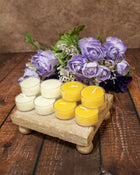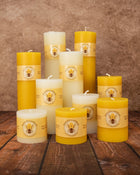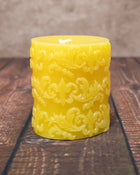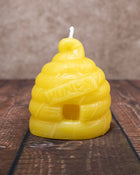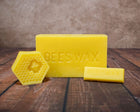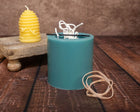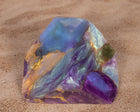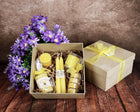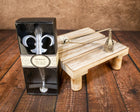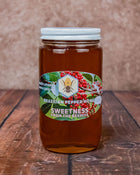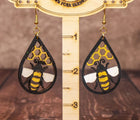"Why We Shouldn't Use Beeswax from China: A Call for Ethical and Sustainable Alternatives"
Beeswax is one of nature's unsung heroes, a versatile substance with a plethora of uses from keeping our cosmetic formulas stable to casting a golden glow from the wax of handmade candles. But did you know where your beeswax comes from could make all the difference?
In this deep dive, we'll explore the perilous world of Chinese beeswax, the ethical and sustainable alternatives at hand, and why, perhaps, the buzz isn't always best when it comes to this eco-friendly goodie. For those passionate about ethical consumerism, this one’s for you. Buckle up, bee enthusiasts and eco-warriors!
The Dark Side of Beeswax from China
Dipping into the world of Chinese beeswax reveals a landscape tinged with shadows and challenges. First off, China hasn’t quite earned its stripes as a beacon of beekeeping practices. The country's methods often don't align with the carefully calibrated dance our Western bees perform with nature.
Environmental Impact
The complex web of ecosystems, where bees play a critical role, is under threat. Widespread deforestation for agricultural purposes across China is swallowing natural habitats, leaving bee colonies with diminishing foraging areas. The stress weighs heavily on the country’s pollinators, and through them, on global biodiversity.
Pesticide Contamination
Speaking of heavy, let’s address the elephant in the room: pesticide use. China is notorious for a liberal application of pesticides, and much of it winds up tainting the beeswax it exports. Our little friends are vastly underprotected, and the ripple effect of these chemicals can be catastrophic for entire colonies. It's not just the bees that bear the brunt; pesticide contamination contributes to the decline of vital insect populations and the broader health of our planet.
Lack of Transparency and Regulation
The opaque nature of China’s beeswax industry is troubling. A profound lack of transparency and the absence of rigorous quality control or verifiable production standards leave consumers in the dark. When you’re scraping beeswax off your cutting board or adding it to your DIY lip balm, that's not a comforting thought.
Ethical and Sustainable Alternatives
Fear not, intrepid consumer! There is a brighter, bee-friendly path ahead. By seeking out ethical and sustainable alternatives to Chinese beeswax, you’re not only improving the lives of bees and their ecosystems but also making a stand for more transparent and accountable practices in the industry.
Locally Sourced Beeswax
One of the most direct ways you can make a positive impact is by supporting local beekeepers. Sourcing beeswax from your local beekeeping community connects you to a product you can trust. Not only does it offload the massive carbon footprint associated with international transportation, but it often ensures a higher quality product due to local regulations and the intimate knowledge of those keeping the bees.
Cosmetic-Grade Beeswax
For those concerned about the purity and safety of their skincare and cosmetic products, the worry about pesticide residues is not trifling. Cosmetic-grade beeswax is a game-changer. Sourced from regions with strict regulations and quality assurance measures, this beeswax variety gives you peace of mind, knowing that it's been tested and triple-filtered for the most refined and purest form.
Benefits and Impact of Choosing Ethical Alternatives
The upsides of embracing ethical and sustainable beeswax are not merely a pat on the back for your conscience; they extend to tangible benefits for both you and the bees.
Preservation of Bee Populations
When you choose to source your beeswax ethically, you're playing a role in preserving bee populations. By supporting beekeepers who champion sustainable practices, you're helping to ensure that the bees have a fighting chance against the modern-day challenges that threaten their very existence.
Support for Sustainable Beekeeping
Ethical beeswax often comes from beekeepers who manage their hives with the utmost care. They prioritize the health and well-being of their bees and the surrounding environment, opting for methods that are not just kinder but also more sustainable in the long run. These are the heroes of the honeycomb, and they deserve our recognition and support.
Reduction of Your Carbon Footprint
For the eco-conscious, the reduced carbon footprint associated with purchasing locally sourced beeswax is a significant draw. Lower carbon emissions from transportation mean that the decision to buy local is a win for the environment.
Tips for Identifying Ethical Beeswax and Alternatives
Navigating the world of beeswax needn't be daunting. There are certain indicators that can help you suss out the ethical from the not-so-much.
Certifications and Labels
One indicator that might initially catch your eye when selecting beeswax are certifications such as "Organic". Often, these labels come from China. However, here's a word of caution from my own experience: these certifications aren't always as reliable or transparent as you’d like to imagine. While they might give a certain degree of assurance about the product's quality, the reality can be a bit more murky. You see, the definition of "organic" can vary significantly from one region to another, and what's classified as organic in China might not pass muster elsewhere. It's a bit like getting a chocolate chip cookie when you're expecting a double chocolate chunk—both are cookies, but there's a world of difference in the details. So, while "Organic" might be a good starting point, it certainly shouldn't be the only factor in your decision. It pays to dig deeper into the source of your beeswax to ensure it aligns with your ethical and environmental values.
Look for beeswax products labeled with recognized certifications that vouch for their ethical sourcing and quality. Certifications like “Pure Beeswax,” “Cosmetic Grade Beeswax,” and “Ethical Beekeeping" can serve as a beacon, guiding you toward products that align with your values.
Researching Sourcing Practices
This is the era of informed consumers, and the power of research is at your fingertips. Before making a purchase, take the time to learn about a company’s beekeeping practices, sourcing methods, and any public statements regarding their commitment to sustainability. Often, a company’s website will provide valuable insights into their ethical approach to beeswax production.
In Conclusion
Beeswax, the sweet byproduct of our industrious friends, can be so much more than just another ingredient. It’s an opportunity to align our consumer choices with a vision of a thriving, biodiverse world. By choosing ethical alternatives to Chinese beeswax, you’re casting a vote for the kind of industry you want to support.
My hope is that this journey through the honey-scented world of beeswax has left you not only informed but inspired. Start by looking at the products in your home that contain beeswax. Then, take that crucial next step. Research the sourcing practices of those products. Consider the impact of your choices, and don’t be afraid to support the local, the pure, the bee-friendly.
Share this knowledge like pollen on the wind. Be a voice for the bees, for our planet, and for a future where ethical consumerism is no longer an outlier but a buzzword, a way of life.



